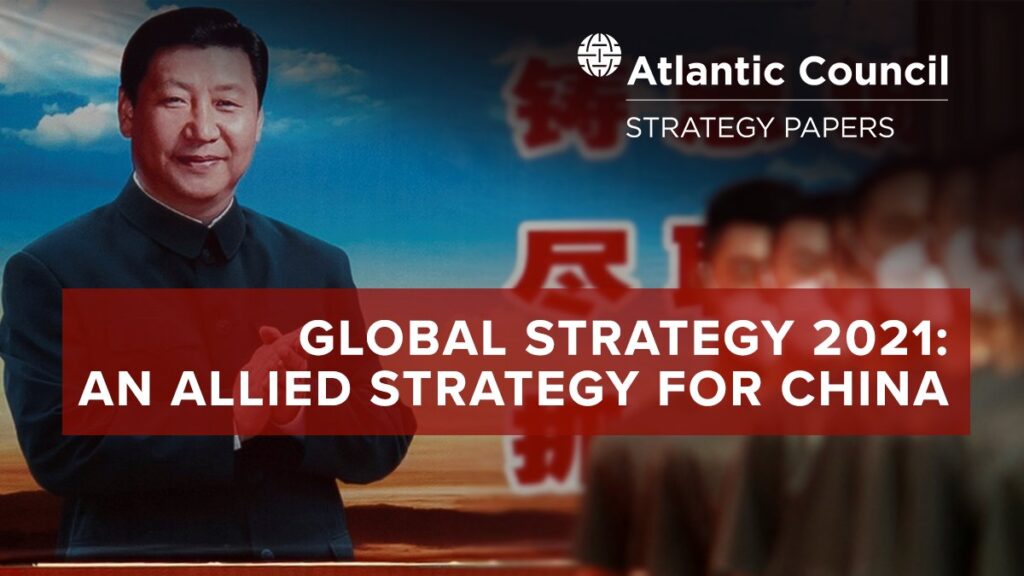 Authoritarian state capitalism will remain a formidable alternative to the Western model of open market democracy for the foreseeable future, according to a new report. Which explains why the new U.S. administration believes the current moment “is existential vis-a-vis the challenge from the rising autocrats,” a leading analyst suggests.
Authoritarian state capitalism will remain a formidable alternative to the Western model of open market democracy for the foreseeable future, according to a new report. Which explains why the new U.S. administration believes the current moment “is existential vis-a-vis the challenge from the rising autocrats,” a leading analyst suggests.
With China engaged in “sharp-power” (or “authoritarian influencing”) efforts to interfere in the domestic politics of democracies to Beijing’s benefit, it is a strategic imperative to “maintain freedom by revitalizing democracy in existing democratic states, preventing CCP efforts to undermine democratic practices, and supporting human rights, democracy, and good governance in other states,” say the authors of Global Strategy 2021: An Allied Strategy for China.
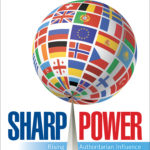
National Endowment for Democracy (NED)
“Political-science research shows that most democratic citizens do not have firm views on foreign policy and their opinions are strongly shaped by elite cues,” adds the report, from the Atlantic Council’s Scowcroft Center for Strategy and Security. Consequently….
Likeminded allies and partners should rebuild domestic support for democracy, free markets, global engagement, and a rules-based system. These have been among their greatest sources of strength, but…there is a growing lack of confidence in the West. Western governments need to place these priorities front and center in their foreign policies and to bring their publics along with them.
“Some pessimists look at China’s population size and economic growth rates and believe that the task is impossible,” Harvard political scientist Joseph S. Nye Jr. observes in a foreword to the report. “But on the contrary, if we think in terms our alliances, the combined wealth of the Western democracies — U.S., Europe, Japan — will far exceed that of China well into the century.”
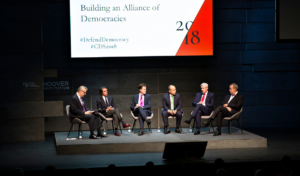
Alliance of democracies
In addition to a D-10 grouping of leading democracies serving as a steering committee of the democratic core of the rules-based international system, the leading democracies should also establish a new formal entity: an Alliance of Free Nations (AFN), or Alliance of Democracies. Whereas the D-10 is limited to a small core group of like-minded states, AFN membership would be open to all recognized democracies around the world—large and small—committed to the shared principles of a rules-based system, the report adds.
“The idea of a ‘D10’ grouping ideologically committed to combating the march of authoritarian states chimes with Joe Biden’s plan to hold a summit of democracies,” the Guardian’s Patrick Wintour observes. “It is not clear if the idea of a D10 summit is seen as additional to the Biden summit or a substitute for the proposal.”
in any case, such an initiative could not be more timely or appropriate, observers suggest.
 “The Biden administration comes in feeling like the moment is existential vis-a-vis the challenge from the rising autocrats,” former State department official and NED board member Victoria Nuland (left), told a Brookings Institution webinar this week. “Russia and China have had four years to deepen their hooks not only into our alliance system but into changing the global rules of the word.”
“The Biden administration comes in feeling like the moment is existential vis-a-vis the challenge from the rising autocrats,” former State department official and NED board member Victoria Nuland (left), told a Brookings Institution webinar this week. “Russia and China have had four years to deepen their hooks not only into our alliance system but into changing the global rules of the word.”
In 2008, while working in the State Department’s policy planning team, the Atlantic Council’s Ash Jain and colleague David Gordon first floated the idea of a bloc of democracies, the Post’s Ishaan Tharoor reports. As Jain put it in an interview with Today’s WorldView, they believed these countries needed to better coordinate their strategies in an age where liberal democracies were hardly ascendant. “Looking at this global landscape, we recognized that the notion of post-Cold War convergence among the major global powers, including Russia and China, was not going to become a reality anytime soon,” he said.
But some other observers are skeptical.
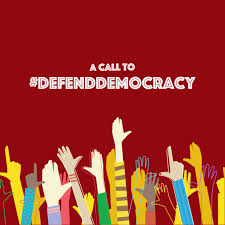 “A bloc of democracies sounds good in practice, but I think there are some major questions about who is invited to join and why, and how to ensure the bloc doesn’t just meet, discuss and agree that democracy is good and important, and then go home,” Rachel Rizzo, director of programs at the Truman Center, told Today’s WorldView. “I’d actually like to see greater pushback on authoritarian leaders through mechanisms that already exist,” she added, pointing both to NATO and the prospect of greater U.S.-E.U. collaboration.
“A bloc of democracies sounds good in practice, but I think there are some major questions about who is invited to join and why, and how to ensure the bloc doesn’t just meet, discuss and agree that democracy is good and important, and then go home,” Rachel Rizzo, director of programs at the Truman Center, told Today’s WorldView. “I’d actually like to see greater pushback on authoritarian leaders through mechanisms that already exist,” she added, pointing both to NATO and the prospect of greater U.S.-E.U. collaboration.
By extending invitations to civil society, the media, upstart technology firms, youth, social impact investors, and other advocates, the proposed Summit for Democracy can generate “a democratic buzz [that] can create a demand to counter rising authoritarianism,” argues R. David Harden, managing director of the Georgetown Strategy Group and former assistant administrator at USAID’s Bureau for Democracy, Conflict and Humanitarian Assistance. An exclusive “D20” club of the most-resourced and influential democracies could partner to counterbalance authoritarian resurgence, he writes for the Hill:
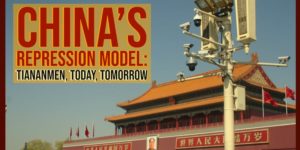
National Endowment for Democracy
An activist D20 would sharpen the distinction between political and economic models — and offer the world a choice between democratic, free market nation states versus the Chinese or Russian models of autocracy and nationalized economies. …. After a few key victories, the D20 will have established a virtuous upcycle and can then enhance leverage to support democratic activists in places like Belarus, Taiwan, and Hong Kong. The D20 should stand against China for its Uighur internment camps and Russia for its cyber warfare against democratic states.
Championing Democracy: How America can blunt the rise of authoritarian powers https://t.co/jFKxs1xvJC
— Democracy Digest (@demdigest) December 18, 2020







